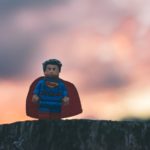 In the UK and the US, a recent study from the University of Exeter found that many people tend to ignore women and those from different backgrounds when picking their heroes. Instead, they often choose white men. The study shows that the achievements of women and people of color are frequently overlooked when people are deciding who inspires them.
In the UK and the US, a recent study from the University of Exeter found that many people tend to ignore women and those from different backgrounds when picking their heroes. Instead, they often choose white men. The study shows that the achievements of women and people of color are frequently overlooked when people are deciding who inspires them.
For most people, their family and close friends are their heroes. This makes up one-third of choices in the UK and 41% in the US. Politicians are also popular choices, with people like Ronald Reagan, Abraham Lincoln, Barack Obama, Winston Churchill, and Margaret Thatcher.
Human rights activists and campaigners rank sixth in popularity, including names like Martin Luther King Jr., Nelson Mandela, and Malala Yousafzai in the UK, and Mahatma Gandhi and Malcolm X in the US.
Different heroes
However, there are some differences between the two countries. In the UK, celebrities, actors, and TV presenters are the second most popular category for heroes, while religious figures only make up 1.2%. In the US, religious figures are second, making up almost 7% of all reported heroes. Interestingly, Brits prefer living religious leaders like the Pope, while Americans lean towards Biblical figures.
The study also shows a gender gap in hero choices. Women in both the UK and the US are more likely to choose women heroes. Men are about four times less likely to do so. Only 9% of men in both countries pick women as heroes, compared to 34% in the US and 40% in the UK for women.
“The allure of heroes is enduring. We have found people’s gender and ethnicity have an impact on who their hero is,” the researchers explain. “There is a persistent gap between the publicly prominent white male hero figure and a perpetually ‘invisible,’ and ‘forgotten’ heroine. People’s choice of hero reflects their own sex and race and ethnicity.”
Lack of female role models
In both Britain and the United States, only a quarter of Britons and one-fifth of Americans reported having a heroine, or female hero. When excluding family members from the equation, a mere 11% of Americans chose a woman public figure as their hero, compared to one in five Britons. Interestingly, in the United States, those under 25 were more likely to have a female hero than older individuals, while in the UK, the rates were similar across age groups at 25%.
Political affiliations also played a role in hero choices. In Britain, supporting the Conservative Party increased the likelihood of having a woman hero, with a 27% chance, compared to 13% for Labour, 22% for the Liberal Democrats, and 14% for UKIP. This phenomenon is thought to be a “Thatcher effect,” with Margaret Thatcher accounting for 18% of all women heroes listed by Conservative supporters.
Conversely, in the United States, supporting the Republican Party substantially decreased the chance of having a woman hero, with Republicans having a 13% chance compared to the Democrats’ 25%.
Lack of ethnic minority recognition
The study also highlighted disparities in the recognition of ethnic minorities. While racial prejudice is on the decline in Britain, non-white minority heroes make up only 15% of all heroes, compared to 31% in the US. Among these figures, 21% are women.
Non-British political activists such as Nelson Mandela, Martin Luther King Jr., Malala Yousafzai, Mahatma Gandhi, and Muhammad Ali dominate the list, with only three Britons making the cut: boxer Lennox Lewis, Formula 1 driver Lewis Hamilton, and Victoria Cross recipient Johnson Beharry. The study emphasizes the urgent need for public recognition of ethnic minorities within the fabric of British society.
“In both countries, ethnic minorities belong to another group of ‘invisible,’ and often overlooked heroes,” the researchers explain. “But there was a much wider presence of non-white Americans in the ‘pool’ of the US heroes. This included prominent public figures such as Barack Obama and Martin Luther King Jr.
“As in Britain, American women are disproportionately—and statistically significantly—more likely to have ethnic minority heroes with one in three women declaring an ethnic minority figures among their family and friends.”